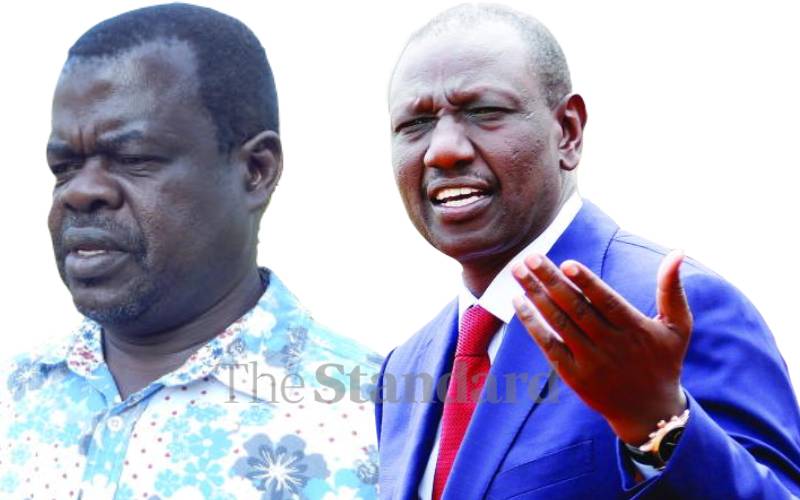×
The Standard e-Paper
Join Thousands Daily

Activist Okiya Omtatah and Deputy President William Ruto. [File, Standard]
Deputy President William Ruto could be forced to resign before seeking nomination to run for president if a suit filed at the High Court succeeds.